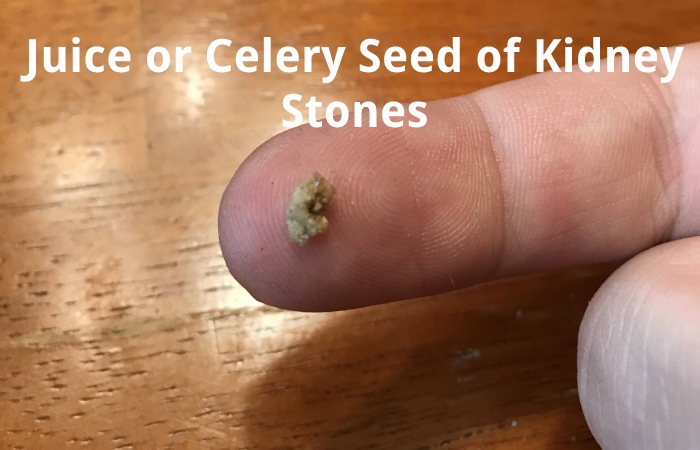Table of Contents
Kidney Stones
According to the Medline plus medical encyclopedia, kidney stones are solid masses made up of tiny crystals that can occur in the kidney or the ureter, the tube through which urine descends from the kidney to the bladder.
Kidney stones are common, and some are hereditary. So in that sense, the portal details that there are different types of kidney stones; likewise, the cause of the problem is contingent on the kind of stone that occurs.
What are Kidney Stones?
Kidney stones occur when reserves and salts, most commonly calcium oxalate, crystallize in the kidneys, creating hard deposits. Although they form in the kidneys, kidney gravels can affect any part of the urinary tract. Kidney stones are also called stones or urolithiasis.
Dehydration is considered a major contributing factor to the growth of kidney stones. When the body is dry, fluid moves the kidneys more slowly, increasing the chances of salt and mineral compounds coming into direct contact and sticking together.
What are the Symptoms of Kidney Stones?

MedlinePlus indicates that some people do not have symptoms until the stones pass down the ureters. At that point, the pebbles can block the flow of urine from the kidneys to the bladder, causing intense pain, which can be felt in the abdominal area or on the side of the back.
Other symptoms derived from kidney stones are abnormal urine colour, blood in the urine, chills, fever, nausea, and vomiting.
Home Remedy to Remove Kidney Stones
Alternative medicine offers some options to eliminate kidney stones naturally. However, it is pertinent to reference that the effectiveness of this type of treatment is not fully guaranteed, so it does not replace the specialized medical concept in any way.
The Better with Health portal suggests horsetail as a treatment for kidney stones, “a medicinal plant with diuretic properties that stimulate kidney function and also help combat inflammation and discomfort associated with fluid retention.”
Risk Factors of Home Remedies for Kidney Stones
According to the National Health and Nutrition Examination Survey (NHANES), kidney stones affect approximately 8.8 per cent of grownups in the United States (US).
Men are more likely to grow kidney stones than women. Approximately 10.6 per cent of men in the US develop kidney stones, compared to 7.1 per cent of women.
African Americans and Hispanic Americans consider less likely to develop kidney stones.
Obesity and diet consider significant risk factors for the disease. For example, approximately 11.2 per cent of obese people in the United States develop kidney stones.
Diets rich in dehydrating foods and compounds, such as sugar, salt, and alcohol, can contribute to the development of kidney stones. Certain foods, while otherwise nutritious, are also naturally high in oxalate.
People at high risk of emerging kidney stones may choose to avoid the following:
- spinach
- almonds
- rhubarb
- okra
- beetroot
- chips
- fluttered
- nut butter
- bran flakes.
When to See a Doctor
A person should seek instant medical care if severe pain occurs in the lower abdomen or genitalia. Many kidney stones can treat with fluid therapy and pain relievers.
However, stones can get wedged in the urinary tract or damage urinary tissues and usually require immediate surgery.
13 Tips for Home Remedies for Kidney Stones
Before taking any home remedy, it’s a good idea to talk to a doctor, especially for persons with pre-existing medical circumstances or who are taking medication.
Many antibiotics, diuretics, blood weight, cholesterol, and liver medications can negatively interact with herbal remedies. The US Food and Drug Management (FDA) does not control herbs or supplements.
1. Agua
Drinking water is one of the calmest ways to stop and treat kidney stones. Most health establishments recommend drinking 64 ounces (oz) or eight glasses of water per day.
Drinking 12 glasses daily can help eliminate or slow the growth of kidney deposits.
2. Juice/Lemon Juice
Lemons contain citrate, a multiple that helps break down calcium deposits and slow their growth. Two 5-ounce (0.15L) glasses, first on an empty stomach first thing in the morning and another a few hours before dinner, can help break up smaller stones.
It is essential to scrutinize labels when buying juices. For example, many products labelled as lemon juice contain small amounts of pure lemon extract and high quantities of sweeteners, which can increase the risk of kidney stones.
3. Basil
Basil contains compounds that help steady uric acid levels, making it harder for kidney stones to form. Plus, it contains acetic acid, a chemical known to help dissolve stones.
A daily teaspoon of basil extract or pure juice can help prevent and treat kidney stones.
4. Apple Cider Vinegar
Apple cider vinegar also covers citric acid, which can help melt calcium credits.
Two tablespoons of undiluted apple cider vinegar mixed with 8 ounces (0.24L) of aquatic can reduce the symptoms of kidney stones and stop their development. This mixture can be drunk several times daily and is most effective consume before meals.
Apple cider vinegar and supplements from various brands are available online.
5. Green Wheat Juice/Juice
Green wheat juice can help expel minerals and salts from the urinary tract, preventing them from crystallizing into kidney stones.
Green wheat juice can help expel minerals and salts from the urinary tract, preventing them from crystallizing into kidney stones.
Green wheat contains compounds that increase urine production, allowing stones to pass more efficiently and reducing the risk of formation.
Juice or Celery Seed for Kidney Stones

Celery contains antioxidants and mixes known to increase urine production. And also, Therefore, adding celery seeds to meals regularly can help reduce the chance of developing stones.
One or two stalks of celery can also mix with water to make celery juice. Celery juice can be spent daily to help treat kidney stone symptoms.
7. Ulva ursin
The disinfectant and solvent possessions of the herb Ulva ursin can help cleanse the urinary tract and make it easier to pass kidney.
Some research designates that 500 milligrams (mg) of pure, dried ova ursin thrice a day may benefit people with a kidney stones.
8. Bean Broth
Green beans contain a high amount of magnesium, a compound known to help reduce stones and their symptoms.
One way to get the benefits of kidney beans is to remove them from their pods and slowly boil them for about 5-6 hours. Then, the resulting liquid can be filtered, ideally using cheesecloth, and served hot or cold.
9. Extra Virgin Olive Oil
Extra-virgin olive oil is a profuse, rich oil that can help ease the passage of kidneys by oiling the urinary tract.
A 5-ounce (0.15L) glass first object in the morning and another in the late afternoon, ideally at the same time as additional herbal or home medicines, can decrease pain and discomfort.
10. The Terrestrial Tribe
Beverages made from the fruits of Tribulus Terrestre can help reduce phosphate levels in the urine, which makes it harder for gravels to form.
The herb also contains compounds that increase urine output and help dissolve mineral deposits.
All parts of the plant and its fruits are eaten raw. And also, The herb may only be obtainable in pill form or can be drier for use as a tea, although several supplements are available online.
11. Pomegranate Juice
The astringent and antioxidant properties of the pomegranate tree believe to reduce the chances of developing stones and make them calmer to pass.
Pomegranate juice also contains compounds that decrease the acidity of urine, making it harder for stones to form.
Buying whole pomegranates and eating the seeds or juicing them is the easiest way to reap these health benefits.
12. Dandelion Extract, Tea or Juice
Dandelion contains compounds that increase the manufacture of bile and urine, which helps eliminate waste from the body.
In pill or capsule form, 500 mg of dried dandelion extract may help relieve kidney stone symptoms or prevent their formation. In addition, taking 3 to 4 cups daily of tea or juice/juice recommend.
13. Weight Loss
A healthy weight combined with a proper diet rich in nutritious foods and fiber is essential for kidney stone prevention and treatment.
Drinking carbonated, caffeinated, and alcoholic beverages can increase a person’s risk of developing stones.
In addition, foods high in sugar, salt, or fat increase the risk of kidney deposits and intensify symptoms.
Conclusion
It forms from mineral and acid salts that accumulate in the urinary system when it is impossible to process toxins. It is essential to go to a professional since stones (as they are popularly known) do not have a particular time to “appear”, but they are painful, sometimes even disabling. And also, The professional will indicate what treatment to take in each case. In addition, it is possible to help dissolve stones thanks to some home remedies and diuretic herbs. Next, we develop them.
Also Read: Home Remedies for Blood in Cat Stool – Types, Causes, and More
